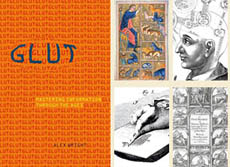Patient as meta-patient
February 4, 2006
My recent stint in the hospital left me feeling like nothing so much as a 223-pound body of data. During my twenty-eight hour sojourn, the medical staff extracted perhaps a half pint of blood and, I'm guessing, at least a gigabyte of data: EKG tests, an echocardiogram, cardiac telemetry monitoring, blood pressure readings, and a constant stream of questions-and-answers dutifully entered into networked data entry terminals that the nurses would wheel around from room to room.
While my human contact with the nurses and doctors did wonders for my state of mind, I knew all the real doctoring was going on behind closed doors. My vital signs were streaming across the hall via a wireless transmitter attached to telemetry straps glued to my chest. Somewhere inside the monitoring chamber, an overnight duty physician kept track of all the incoming data points. Occasionally he would dispatch a nurse in to my room to adjust my IV drip, give me a pill or take another blood sample. I never actually met the overnight doctor; he was just a distant voice across the hall.
Whenever it was time for a new medication, the nurse would wheel in the portable data terminal, scan the barcode on my hospital wristband, then zap another barcode on the syringe or bag of pills before administering the dose. All of which would then get fed back into the invisible data vortex in the back room.
The whole experience put me in mind of a talk I went to hear last summer by Judy Lief, who showed a film and led a discussion about the modern hospice movement. She talked about the mechanization of modern medicine, and how the practice has become so technologically focused that it tends to drive a psychological rift between medical staff and patients. This insular tendency is further reinforced by our cultural disposition to view death as a form of failure: a failure of the body or, at another level, a failure of the medical system. From a Buddhist point of view, death is not a failure but simply an eventuality, neither good nor bad. From a certain point of view, you could even look at it as an opportunity.
Speaking for myself, I can't say I am quite so realized just yet as to go around embracing my own mortality. For now, I feel grateful to the unseen doctor at the terminal screen, to the inscrutable data systems that enveloped me, and to the people who designed them. I may just be starting to get that whole Richard Brautigan thing.
File under: Personal
_____________________« Rolling with Walt | Amish Technophilia »
GLUT:
Mastering Information Through the Ages
New Paperback Edition
“A penetrating and highly entertaining meditation on the information age and its historical roots.”
—Los Angeles Times
